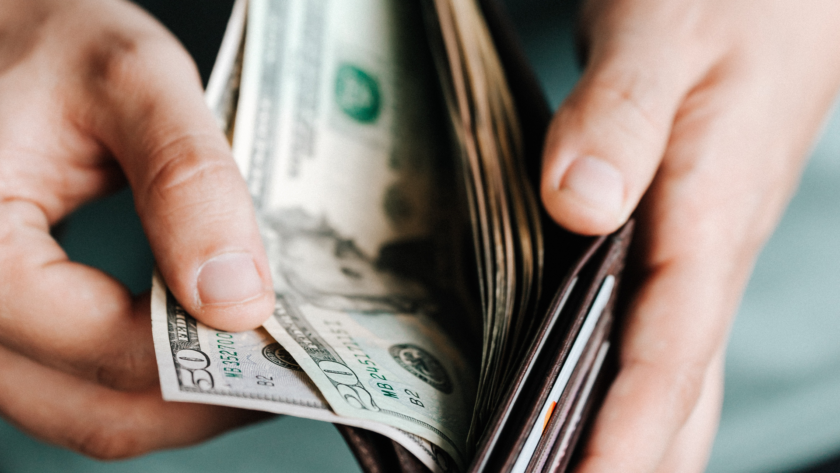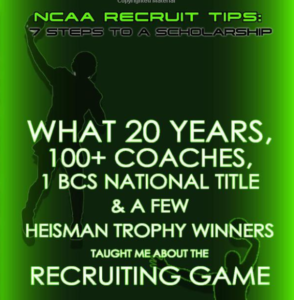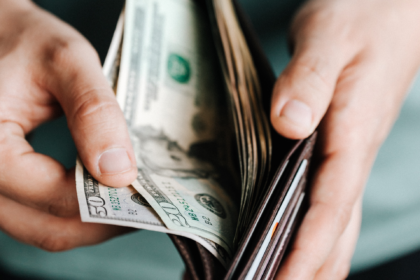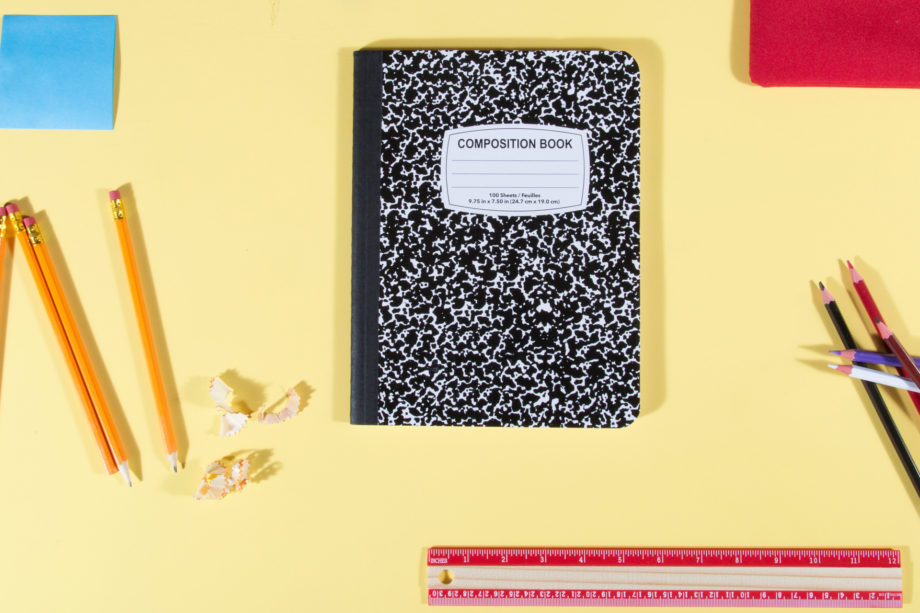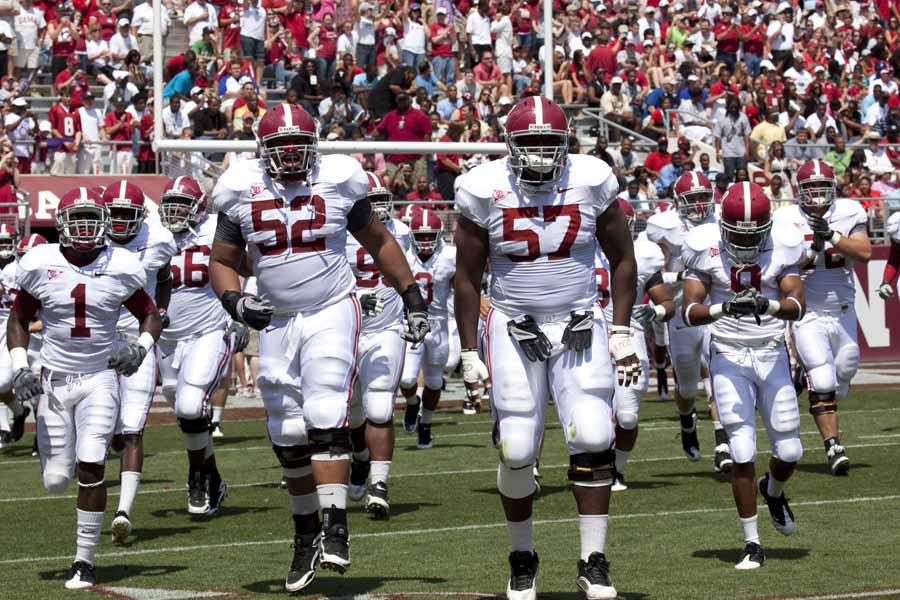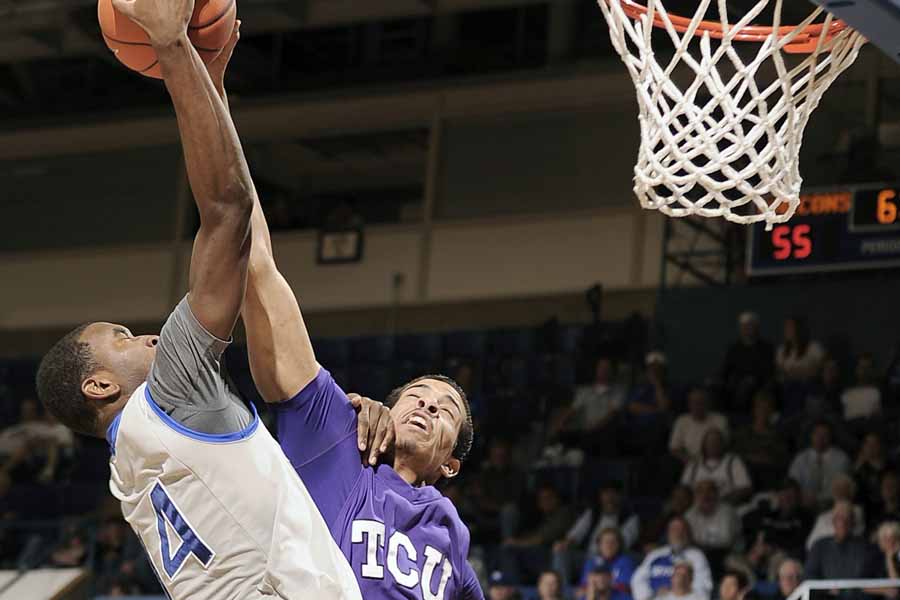BusinessInsider.com: How college athletes are getting paid from brand sponsorships as NIL marketing takes off
On July 1, after a decades-long fight, student-athletes across the country gained the right to make money from their names, images, and likenesses (NIL) thanks to a flurry of new state laws and an NCAA policy change.
What happened next was a mad rush of student-athletes, small businesses, national brands, and startups looking to cash in.
Some athletes in widely followed sports scored deals worth five or six figures. But many of the 460,000-plus student-athletes across the US ended up working with local businesses, like restaurants, or participating in one-off marketing campaigns with bigger brands, receiving free products, gift cards, or smaller cash payments, rather than big pay days, for their NIL promotions.
In addition to brand deals, student-athletes have run branded training clinics and have gotten paid for appearances and autograph signings… [READ MORE]
AdWeek.com: Student-Athlete and Brand Partnerships Increase Following New NIL Policy
The NIL legislation opened the floodgates for student-athletes and brands. Fresno State twin basketball stars and TikTok mavens Haley and Hanna Cavinder were some of the first student-athletes to sign NIL deals, inking an arrangement with Boost Mobile. The Cavinder twins went on to then sign with brands like the WWE, retailer Champs Sports and athletic apparel brand Eastbay. UConn basketball star Paige Bueckers has also signed contracts with apparel brand StockX and Gatorade.
“Changes to the NCAA NIL compensation policy created an opportunity for StockX to be one of the first to do something disruptive in the space,” StockX chief marketing officer Deena Bahri told Adweek. “We immediately thought of Paige because she stands for innovation and disruption; she’s not afraid to use her voice for good and leverage her position for change.” [READ MORE]
Forbes.com: Women’s Athletes Are Big Winners In College Sports’ 2021 NIL Reform
Today marks the six-month anniversary of several new state laws that ensure college athletes the right to endorse products without being punished for doing so by the NCAA. For years, the NCAA’s leadership had proclaimed that state-mandated NIL reform would lead to a worsening of the gender divide of college sports. However, in reality, women’s college athletes have been some of the biggest beneficiaries of college sports’ 2021 economic reform.
The many examples that help to illustrate the emerging opportunities for women’s college athletes to profit from endorsement opportunities include the following:
At the University of Connecticut, star women’s basketball player Paige Bueckers has signed at least two major endorsement deals, including one with the famous sports drink, Gatorade. According to speculation by the Wall Street Journal, Bueckers’s endorsements could eventually earn her upwards of $1 million per year, which is more money than the average annual take-home pay of most WNBA players.
At Fresno State University, twin guards Haley and Hanna Cavinder, who were already well known for their Instagram and TikTok accounts, signed several endorsement deals with companies including Boost Mobile and Six Star Pro Nutrition. Not only are these deals projected to earn the Cavinder twins more than their own basketball coach, but these deals have also helped the young basketball players to augment their personal brands and their social media followings… [READ MORE]
LSU Competing with Alabama and Texas A&M with NIL Deals and Recruits
Recruiting is operated differently for many prospects now. With Name, Image, and Likeness (NIL) opportunities for individual recruits across the United States, top college football programs are either adapting or being left behind.
Top prospects want the opportunity to earn big money prior to ever heading off to the NFL. For LSU, two of its top competitors have already done a tremendous job with utilizing NIL deals for top prospects.
Alabama and Texas A&M, the top two 2022 recruiting classes in the country belong to those SEC West institutions. They both utilized NIL deals to help bring in those top recruiting classes.
Just reading about Alabama quarterback Bryce Young making enough money to support himself and his family before taking a snap as the Crimson Tide starter, that’s going to help. So let us start there.
Deals with Cash App and Logan’s RoadHouse, as well as trading card companies like Onyx, Wild Card, and Leaf were pushing Young towards seven figures before fall camp ever began… [READ MORE]
ABC11.com: ‘I wanted to do something positive’: Student-athletes use new NIL rules in different ways
CHAPEL HILL, N.C. (WTVD) — The 2021 season ushered in a new era of college athletics, with student-athletes able to capitalize off their name, image, and likeness for the first time.
While athletes previously received scholarships and limited permissible benefits, they were largely cut out of money-making opportunities.
“They were just literally working for their schools for free. So, I think NIL in that sense is great where they can earn some value and take care of themselves and their families,” said Zac Hiller, owner of Loyalty Above All, an agency that represents UNC starters Josh Downs and Garrett Walston.
Downs has an autograph signing lined up for next week, while Walston used his platform to help raise funds for a charitable endeavor, something that was not allowed prior to NIL rules going into effect. In September, Walston sat down with ABC11, and shared the story of his friend Riley Estes, who died by suicide earlier this year. Estes’ family set up The RILO Foundation in his memory, which seeks to spread awareness of suicide prevention and mental health difficulties… [READ MORE]
Forbes.com: 4 Tips For Women NCAA Athletes Seeking NIL Deals
Name. Image. Likeness.
No longer will college students who win Olympic medals be left off the Wheaties box, a la Angela Ruggierio’s latest for Forbes. Never again will an NCAA champion compete on Dancing with the Stars with restrictions, a la Arike Ogunbowale .
Now that the NCAA was forced to end its amateurism scam, there are a lot of companies and a lot of athletes looking to make money. We are still in the wild west of NIL deals and there is a lot to consider.
One big question I have is how will this impact athletes competing in women’s sports? I sat down with Morgan Frazier, former NCAA Division I athlete and current assistant general counsel at Student Athlete NIL, to discuss her top five tips for navigating NIL deals… [READ MORE]
FORBES: NIL Momentum Increasing For High School Athletes
Although only a handful of state laws and state high school sports associations explicitly allow high school student athletes to monetize their name, image and likeness at this time, we’re increasingly see states and associations grant approval and high school athletes sign NIL deals. This week alone has seen three top football and basketball prospects sign their first deals in California and New York.
State laws and rules vary greatly
Alaska, California, Nebraska, New Jersey, and New York are currently the states where it’s clear all high school student athletes in the state can profit from their NIL activities. In other states, high school students who attend private schools or academies are often allowed if they aren’t subject to the state high school association, but in a few states laws prohibit NIL across the board for high school athletes… [READ MORE]
How a high school football star landed his first brand sponsorship deal
High school quarterback Jaden Rashada.
Irvin Garduño.
High school football player Jaden Rashada signed a sponsorship deal with recruiting app AIR in December.
The contract came in the wake of the NCAA’s July 1 policy change around student-athlete marketing.
Insider spoke to Rashada and AIR founder James Sackville about the name, image, likeness agreement.
When high school football star Jaden Rashada received a Twitter message in December from a brand looking to hire him for a sponsorship deal, he wasn’t sure whether to pursue it.
“I usually don’t respond to anything unless it’s coaches on Twitter,” Rashada, 18, told Insider. “I actually had a couple opportunities before with different companies, but I didn’t like what they had to really offer and what I would have to advertise.” [READ MORE]
Lack of Clear-Cut NCAA Rules Creates Confusion About NIL
When name, image and likeness reforms swept through the NCAA in June, it ushered in a new era for college sports and student athletes alike, one that some observers have likened to the Wild West, with little in the way of guidance as schools and players navigate new terrain.
But if policies allowing athletes to profit from their name, image and likeness are akin to the Wild West, the NCAA is the sheriff tasked with overseeing law and order in this uncharted territory. And that’s a tough job—NIL laws are a patchwork across states. Some states have no NIL laws, forcing colleges located within their borders to rely on the loose guidelines the NCAA provided at the last minute as a court opinion opened the door for NIL last summer.
The lack of clear-cut NCAA policies has created a host of confusion around many aspects of NIL, including whole-team deals, experts say… [READ MORE]
New Notre Dame Coach Discusses Brave New NIL World
It will soon be 2022, and with that the first full year of the NIL (name, image, likeness) era of college football. Just a couple weeks ago, we saw our very first national signing day of this brave new world that NIL has ushered in. New Notre Dame head coach Marcus Freeman, who will lead his guys for the very first time on New Year’s Day in the Fiesta Bowl, discussed how his regime will try and handle the NIL situation in recruiting.
“You’ve got to show them that you have a plan, but there’s certain rules within the NCAA that you can’t do,” Freeman said at a recent press conference. “We can’t say we’re providing this name, image, and likeness deal for you and things of that nature.” [READ MORE]
How Some Very Busy College Athletes Have Profited in the Name, Image, and Likeness Era’s First Season
When the National Collegiate Athletic Association decided to let athletes be paid for the use of their names, images, and likenesses (NIL) this past summer, the main governing body for college sports in America did so at what amounted to legislative gunpoint. Lawmakers in roughly two dozen states—Democrats and Republicans—had passed laws making it effectively illegal for the NCAA to restrict the NIL earnings of college athletes through amateurism rules, something the association had done for its entire history.
The first of those laws went into effect on July 1. So the NCAA threw up its hands and unveiled an interim NIL policy that increasingly feels like it will become permanent. Before making this policy shift, the association spent months begging Congress to create a national law governing NIL use. Nothing happened, and nothing seems immediately forthcoming. Today, college athletes in every state can earn NIL money without sacrificing their playing eligibility.
The athletes who have participated in this burgeoning market describe it as a significant breakthrough. In most cases, they’re not making mints—but they can generate income that fits into their booked-up schedules and that their schools don’t control. Athletes with large social media followings and NIL earning potential to match have felt the relief of not needing to choose between building a sports career and growing a business. For years, the vast majority of college athletes couldn’t do both… [READ MORE]
The story behind Florida’s NIL leader
Eddie Rojas never intended to enter the NIL market.
The former pitcher who threw for Gators baseball from 1997-2000 moved away from the diamond and to an office in Altamonte Springs, Florida,, where he ran an investment firm with 40 employees.
However, after athletes began profiting off their name, image and likeness on July 1, Rojas witnessed an opening.
“After this whole NIL thing started, I saw no one was taking the bull by the horns,” Rojas said. “I thought, ‘Wouldn’t it be cool if fans had the opportunity to get to know Anthony Richardson?’ Too often, fans only get to hear players through the media, but we don’t get to interact with them directly.”
Rojas determined that, if fans were willing to spend $6 on a coffee, they would pay $6 a month to hear directly from athletes. With that vision, Rojas launched the Gator Collective on Aug. 24 with five football players initially on board – Zachary Carter, Mohamoud Diabate, Diwun Black, Keon Zipperer and Gerald Mincey.
Fast forward four months, and over 60 athletes have signed on with the Gator Collective, which now boasts over 1,200 active subscribers. The collective rakes in over $13,000 a month in fees… [READ MORE]
The Sports Marketing Institution Learfield Has Big Plans For College Athletes (Now That They Can Make Money)
Jennifer Davis was named CMO of Learfield, a college sports sponsorship and media company, in March of this year.
In June, the Supreme Court upended the world of college sports and marketing by handing down a decision that guarantees college athletes the right to accept sponsorship and endorsement deals – which formerly would have had them kicked out of the NCAA.
For Learfield, tapping into student athletes is a “whole new world of opportunity,” Davis said.
Brands that are trying to connect with students via stadium signage or social media targeting can suddenly tap star players to post about or use those products themselves.
For schools, the ruling is also a chance to make money. Brands will pay more to see a star NCAA basketball player in their jersey as opposed to in a random t-shirt. The SCOTUS ruling doesn’t allow NCAA athletes to use their school’s intellectual property (IP) without approval.
And there are also other sweeteners, including recruitment. Davis pointed out that potential earnings and marketability of individuals at a school could be a factor for high school stars in choosing between programs.
AdExchanger caught up with Davis to talk about Learfield’s data-driven operation and its plan to bring student athletes into its sponsorship programs… [READ MORE]
Yahoo! News: Jordan Horston and Tamari Key’s NIL deal about relationships, branding and advocating for Black athletes
Jordan Horston sat at a table in the back of Orange Mountain Designs, signing her name across a bright orange background of a photo of herself, staring and pointing back at her. After each autograph, she carefully drew a triangle with an exclamation point inside: a caution sign.
“You want to hear the real story? Or like, what I tell people?” she asked.
The real story goes like this, according to Horston… [READ MORE]
